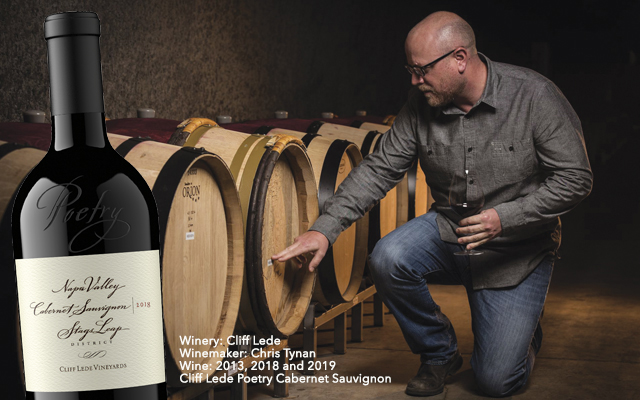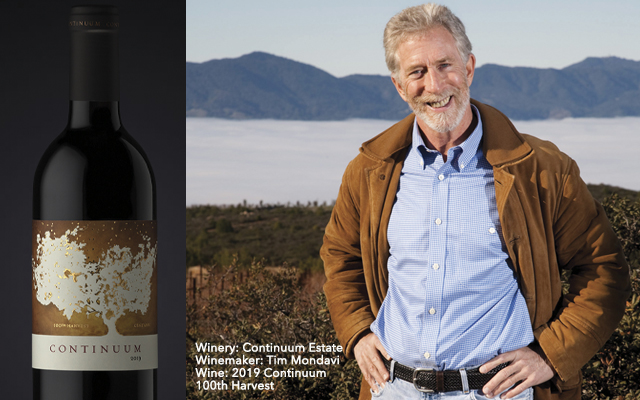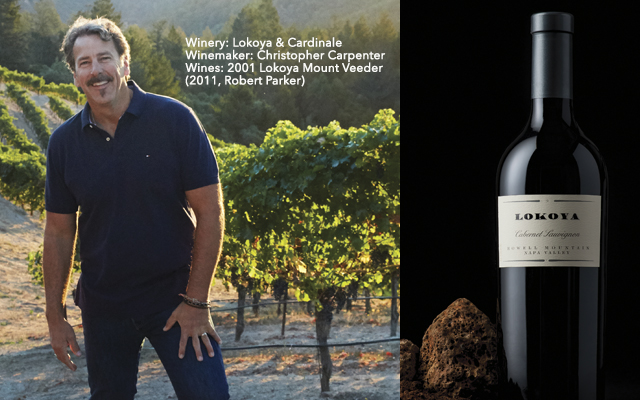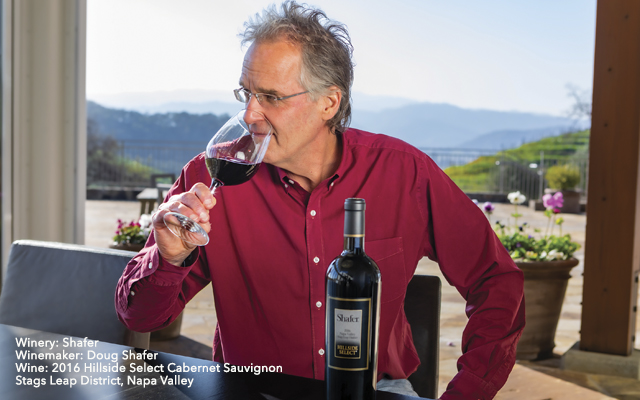Crafting the Perfect 100-Point Wine
Achieving a 100-point score is the dream of many a winemaker; and, sadly, will continue to be a dream for most.
It’s like standing on the top tier of the Olympic podium. Or making a hole in one. This is no small feat. There aren’t enough legitimate reviewers of wine to bend the odds in a winemaker’s favor. But there are a few storied brands that have managed to collect more than one precious perfect score, and it’s their wines that are studied and dissected, looking for those telltale signs of perfection, if they can be surmised.
Much has been written about the use of numerical wine scores: whether you love them or hate them, they are here to stay, and represent a universal language for conveying wine quality.
Well-known wine reviewer, Jeb Dunnuck, says his scoring system is roughly based on the High School Grading System most US students understand. It begins at 50 points and ends at 100 points. His website states:
100 to 96 – As good as it gets. These wines reach the peak of my personal scale of quality.
95 to 90 – Outstanding wines. These wines are outstanding for their type and are worth the extra effort to seek out.
Jim Gordon of Wine Enthusiast remembers well the first wine to which he awarded 100 points. It was the 2016 Domaine de la Terre Rouge “Ascent” Syrah from Sierra Foothills AVA. To him, the wine exhibited the hallmarks of greatness: concentration, depth, layers, creaminess, balance, finesse and structure that can promote aging. His decision to award 100 points came down to this. “I couldn’t think of anything that the wine lacked. It seemed to fulfill every wish or expectation one could have for a Syrah, no matter where the grapes came from. In my judgment, as someone who has spent decades reviewing wines, it reached the pinnacle of quality.”
At a recent wine competition, three wines out of a thousand entries were awarded 100-point scores. For the judges, these wines exhibited quintessential varietal character, impeccable balance, and lacked nothing warranting demerit. “Is there anything more you could possibly want from this Riesling ice wine?” asked Dan Berger. “How could this raspberry wine be any more mouthwatering, vivacious and luscious?” I asked. “I don’t believe there’s a thing the winemaker could have done to make this Late Harvest Vignoles any better,” said Larry Van Aalst. Perfection, like beauty, is in the eye of the beholder. But when three people easily agree they’ve tasted it, take heed.
Here are four winemakers that have scored the Big 100. We asked all of them what they believe makes a 100-point wine. Did they think, “This is it!” when finalizing the blends on their winning wines? And what makes them special?

Chris Tynan has racked up an impressive number of 100-point wines. Three during his tenure at Cliff Lede, which began in 2012, and a seven more at Colgin prior to that. “The recognition is always welcome and fun, but you can’t let it change what you do or what you think of each wine,” says Tynan. “There’s always the next wine to craft and the bar gets higher and higher with each 100-point score.”
Some vintages are just given to deliciousness, and offer what he calls “a plethora of exceptional raw material.” 2013, 2018 and 2019 were certainly rich with such fodder.
Tynan says a great wine really grabs his attention right away. “I get the paradoxical perception of both an effortlessness expression of the vineyard and vintage, while simultaneously also sensing the precise and masterly artistry of the maker. Standing in front of a great painting or listening to a beautiful song, you can see the brushstrokes, hear the notes, but you’re joyfully lost in the numinous, otherworldly pleasure of delightful sensations.”
Simply put, though, he and the team are “really just trying to ‘wow’ ourselves and make a wine that represents the best of the vineyard and vintage.”
The 2018 Poetry has a rich expansive expression, full of lush red and black fruits with layers of violet, tea, and jasmine aromas, while the 2019 Poetry builds on this core with an added layer of freshness and the complex spice notes of bergamot, cardamom, and clove.
• • •

Being in business for 100 years has enabled the Mondavi Family to develop foundational friendship with legends like Rothschild and Marchese Frescobaldi. “I have been very fortunate to meet and work with many individuals and properties considered to be among the finest in the world,” says Winemaker Tim Mondavi. “These and many other benchmarks have clearly been important references for us. Critics are first and foremost lovers of wine and the best are aware of the great wines and properties of the world. Fortunately, our Sage Mountain Vineyard is an extraordinary site.”
He credits the Sage Mountain vineyard as key to producing stellar wines like the 2018. He quips, “I said, ‘This is it!’ when we were able to secure this fabulous property in 2008 and 2009!”
Being all estate has distinct advantages. “Overseeing the evolution of wines in barrel allows us to build upon our knowledge base and informs how we tend to our site for the next year. It also allows us to better reveal the nuance and complexity of the vintage. This is the strength of a completely estate-based entity.”
The 2018 is special, but he’s equally jazzed about the subsequent vintage. “The 2019 Continuum is emotionally significant for us as it represents the 15th vintage of Continuum and our family’s 100th consecutive harvest in wine.”
Mondavi describes the signature characteristics of Sage Mountain Vineyard as wild sage, bay laurel, minerality, and vibrancy. “These elements, along with the iron core of our rocky soils, are the through line of our terroir each year.”
• • •

Christopher Carpenter had already scored 100 points for his 2001 Cardinale (2010, Steve Heimoff, Wine Enthusiast) when he received a 100 rating in 2011 from Robert Parker for the 2001 Lokoya Mount Veeder. “It’s huge personally and professionally and helps bring attention to the winery and justifies all the attention to detail myself and my team put into growing the grapes and making the wine,” says Carpenter.
What defines a 100-point wine? “I think it’s a combination of elements. How does this wine reflect place, variety, and vintage? Is it balanced across all the factors that create the flavor: the grapes, the microbiology that carried out the various fermentations, barrels, ageing elements and the blending process? If all those things are in alignment and if that particular critic makes that connection on the particular day that they are evaluating the wine, that is when you see the 100-point score.”
The financial commitment on the part of their collectors and retail partners drives him to approach every wine with “a 100-point mentality.”
He admits to being his toughest critic and is always nervous when tucking a final blend into the cellar. “It comes down to having confidence and taking a leap of faith. I can’t control any of the critics, but I can control the path of excellence I demand of myself and the people and processes with which I work.”
• • •

Doug Shafer is pretty straightforward about what he thinks comprises a 100-point wine. “For me, a delicious, beautiful wine is one that speaks to the place where it’s from in a way that is elegant, balanced and pure. The way to achieve that is by planting the right grape variety in the right place and then ensuring the vineyards are healthy. A healthy, carefully tended vineyard makes gorgeous wine. It sounds simple but took us decades to get it right and we continue to fine tune.”
The 2016 Hillside Select wasn’t Shafer’s first 100-point rodeo. “We’ve been incredibly fortunate over the years to have received a number of great reviews accompanied by scores that hit that 100-point mark. I don’t think it’s possible to get blasé about it. When you pour everything you have into making a wine, getting that kind of acknowledgement is great.”
Shafer admits their winemaker, Elias Fernandez, is their toughest critic. “Elias and I have been working together since 1984,” Shafer tells us. “We’ve learned a lot together but it’s really Elias who’s the perfectionist. It’s been a privilege to be his friend and colleague.”
They both knew there was something special about vintage 2016. “When we grow the fruit and make the wine, our total focus is to let the wine become the best version of itself,” says Shafer. “With 2016 all the elements came together in the vineyard, on the crush pad, and in the winery. It was exciting to follow its progress over the years and it’s been an amazing experience to see the reception it’s gotten with people who love wine.”
• • •
And that’s really what it’s all about in the end. Giving people who love wine something to get excited about.